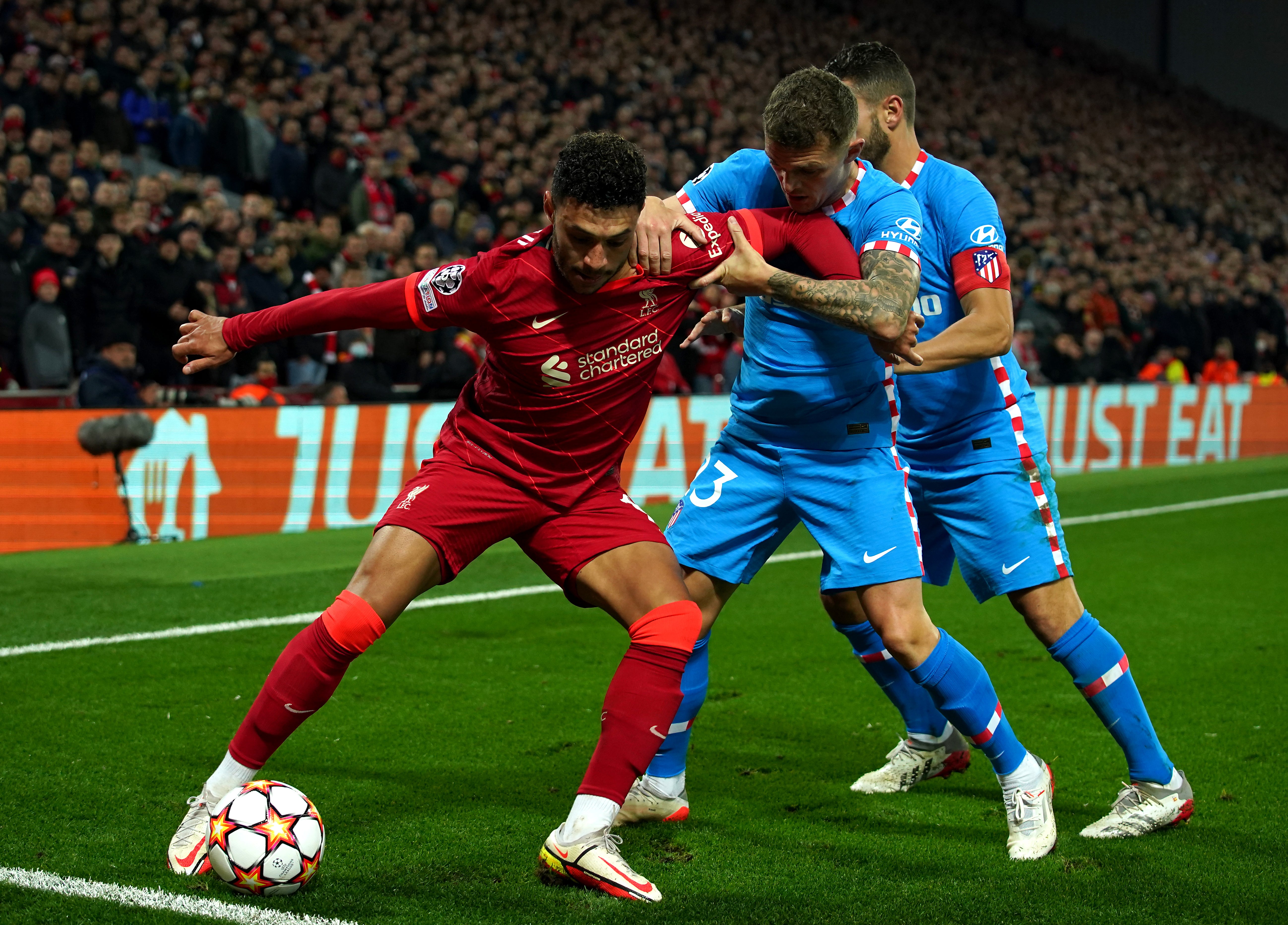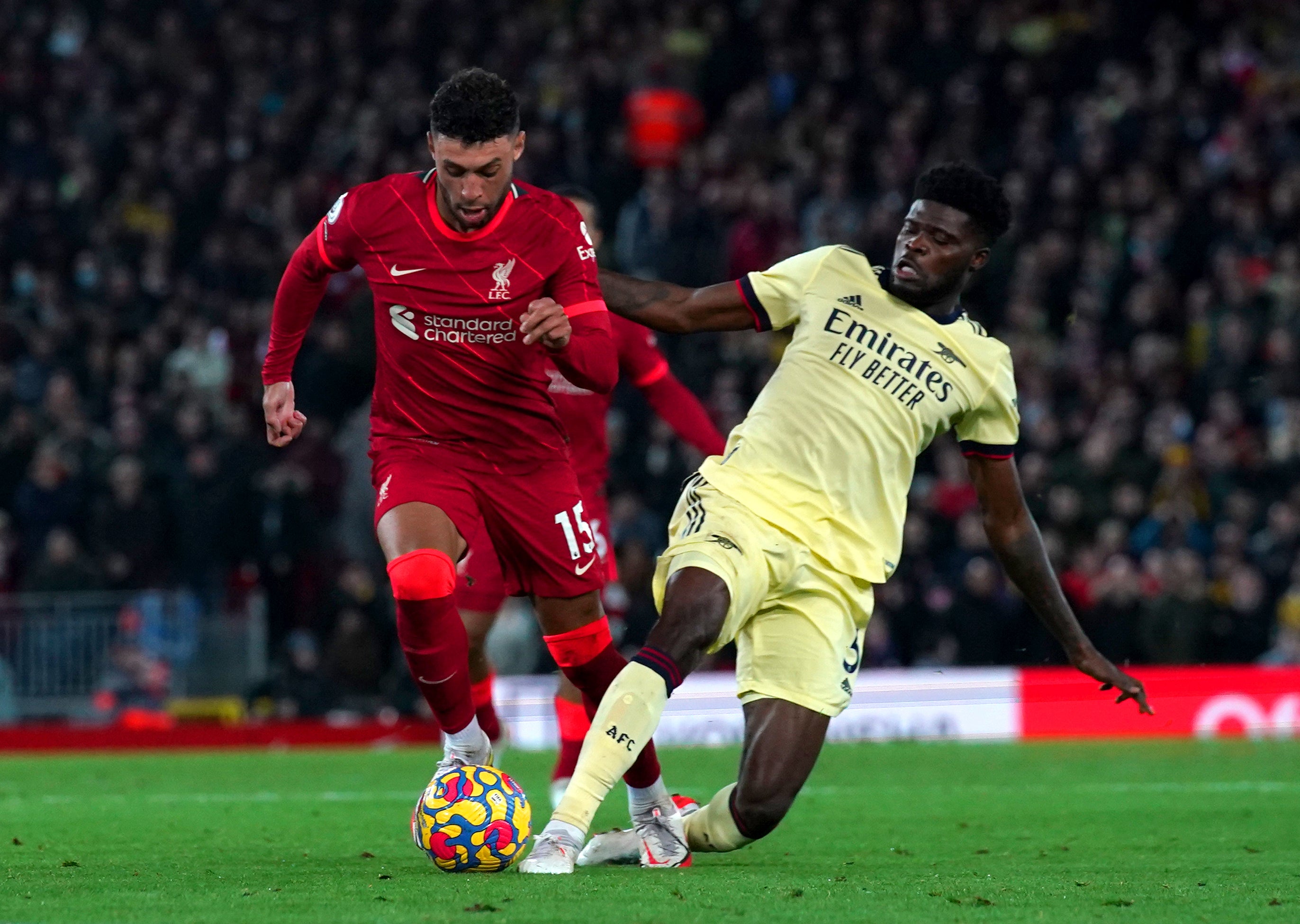Alex Oxlade-Chamberlain reemerges for Liverpool refined by experience and adversity
The midfielder has fought back from the fringes and has the chance to aid Liverpool's next stage of evolution

It was poetic, and as some close to the player believe, had a powerful feel of destiny. Arsenal came to town and Alex Oxlade-Chamberlain came to life for Liverpool in a complete, dynamic manner not seen since 2017-18.
Watching the midfielder against his former club at Anfield on Saturday night was not just a throwback to when he was at his explosive best under Jurgen Klopp, but a twig to the player he described himself as while still in North London.
Back in 2013 Oxlade-Chamberlain painted his stylistic profile on Arsenal’s official website: “Dribbling with the ball, running at defenders, taking players on and trying to open teams up. I do like to have a shot.
“Arsenal are all about nice, intricate passing movements around the box, so if I shoot too much from outside the box without scoring the boss will have a go at me! I need to stick to the short passes, so I don’t shoot as much now.”
Having found his natural instincts curbed, with his high-octane game at odds with Arsene Wenger’s “orchestra,” Oxlade-Chamberlain finally found football freedom on Merseyside.
He was so compatible with Klopp’s organised chaos that he became the manager’s core weapon of choice, even in the most important fixtures: those against Manchester City.
Liverpool’s reality of being uber aggressive and thoroughly ruthless in transition counted on Oxlade-Chamberlain’s gifts, with the front three thriving from it.
The horrific injury he suffered against Roma in April 2018 – tearing his ACL, damaging his lateral collateral and medial ligaments in the process while tearing his hamstring tendon – did not only rob the dynamo of two Champions League final appearances, but the ability to influence Liverpool’s evolution.
Their attacking blurs that would maim opponents and was married to Oxlade-Chamberlain’s strengths was not conducive to ousting deep-defending sides to mount a sustained title challenge.
Liverpool concentrated on control, sharpening the spine with the addition of Fabinho to complement the defensive solidity of Alisson and Virgil van Dijk.
The plan was to morph from a blitz machine to a team supremely hard to beat, that learnt to do whatever it takes to win.
Oxlade-Chamberlain was undertaking a gruelling rehabilitation process while this metamorphosis was in full swing and even when he returned to contribute well during the title-winning season, Liverpool felt like an engine powering beyond his capabilities.

Another knee problem cruelly denied him the chance to erode that impression and despite the critical nature of the injury crisis at Anfield last season, the ex-England international was only afforded two starts in all competitions.
Had the global pandemic not affected the market so considerably, offers would have been received and accepted for Oxlade-Chamberlain, who has had to wait until the start of this month to get a run in the first XI.
His opportunity is owed to injury-enforced absences in midfield, with Harvey Elliott, Naby Keita, Curtis Jones and James Milner all usually preferred.
It doesn’t really matter how the 28-year-old’s shot to re-establish himself at Liverpool has materialised, but what he’s done with it.
Oxlade-Chamberlain was illuminating against Atletico Madrid, but he was still somewhat trapped in the counter-productive cycle of trying to do too much with his little outings.
“The problem is when you haven’t played for a long time and you consider the situation, you think you have to convince people,” Klopp explained.
“He had his Oxlade-Chamberlain moments: good with the ball and all that kind of stuff. But we need Mr Oxlade-Chamberlain as well; the mature one, the calm one, the closing one. When he hasn’t played for a long time, he tries to overachieve in a game.”
Against Arsenal and with the platform of a phenomenal Thiago-Fabinho pivot, the midfielder delivered just that in a pressing masterclass that marmalised Mikel Arteta’s men.
Oxlade-Chamberlain showed incredible positional and defensive nous, while his support play and the balance in the centre of the pitch was superb.
That was good news not just for him, but Liverpool as well who seem to be shape-shifting again in the current campaign. It is the offensive power that has been restored as the hallmark of the team, with no consecutive league clean sheets since the start of the season.
The reduction of defensive solidity has been in part due to midfield issues, with the exit of Gini Wijnaldum removing its safety-first state.
The trio on Saturday worked perfectly in both protection and providing the forwards, which grants Oxlade-Chamberlain a genuine crack at properly forcing his way into Klopp’s grand plan.
Liverpool have wanted to shift some of their creative production away from the fullbacks and into midfield as opponents attempt to stifle Trent Alexander-Arnold in particular. The signing of Thiago had that design in mind and Oxlade-Chamberlain could help further it.
After watching the last evolution take shape from the sidelines, he could now sketch the next.
But needs to be largely injury-free and “the mature one, the calm one, the closing one” from here on out. The Oxlade-Chamberlain from 2017-18, but more refined. The version he described in 2013 at Arsenal, enhanced by experience, adversity and bouncebackability.
Join our commenting forum
Join thought-provoking conversations, follow other Independent readers and see their replies
Comments